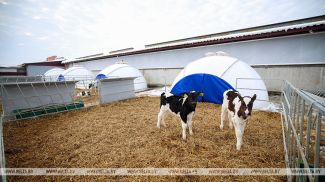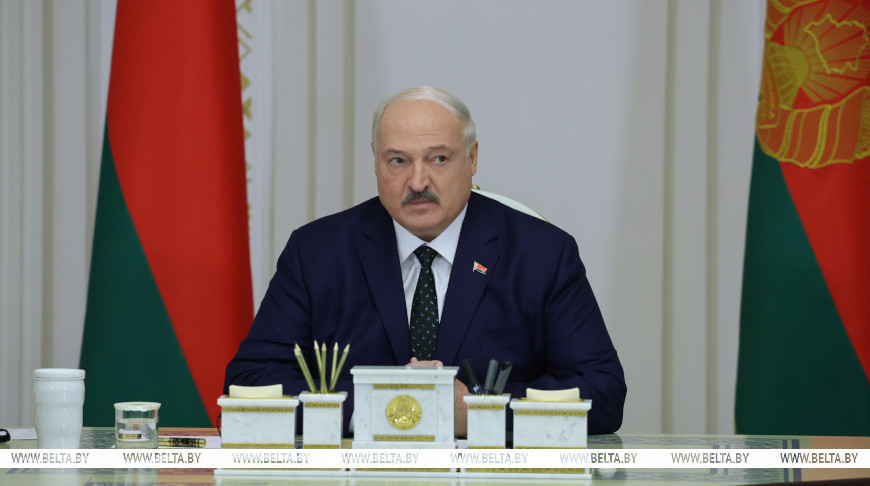
News of the story
"After the Fact: Lukashenko’s Decisions"
Middle East. The region is the intersection of interests of many states, both neighbors and far away nations, even those across the ocean. In today's world you wouldn’t want to find yourself in the zone of someone else's interests – you are bound to get embroiled in a mess… Syria and Lebanon are not poor countries. They have a rich history and good prospects. Indeed, they have experienced internal contradictions. But when someone decides to capitalize on them, war is inevitable. East is a delicate matter. Belarus, no matter what happens in the Middle East, has never cut ties with friendly states. Moreover, it has always tried to contribute to their development. Why? This is what we are going to talk about today. In this episode we will tell you what benefits Belarus is looking for in Syria and Lebanon. Is the matter really about benefits? What message did Lukashenko's foreign minister convey and why, according to the Belarusian president, these states deserve a great future?
What does Belarus expect of Syria and Lebanon?
Belarus does have many friends in the Middle East, indeed. Some of them are richer, some are poorer. But, as history has shown, the Belarusian leadership does not think in such categories and does not divide countries into rich and not so rich. Belarus focuses on investment cooperation with some countries and on the promotion of its goods and technologies with others. However, no matter with whom Aleksandr Lukashenko holds talks, he always emphasizes that no topics are out of bounds.
Belarus adheres to these principles when building relations with Syria and Lebanon. No political agenda and interference in internal affairs. Only equal, mutually beneficial dialogue.
“Over the years of our diplomatic presence in the Middle East we have laid a solid groundwork for cooperation with countries of the region, including Syria and Lebanon. At this stage (which is a turning point in the life of both countries in many respects) it allows us to maintain our strong, stable positions both in bilateral relations with these two countries and in the region as a whole. We are here solely for developing equal fruitful cooperation in absolutely all areas both bilaterally and in the international arena,” said Ambassador Extraordinary and Plenipotentiary of Belarus to Syria and concurrently to Lebanon and Jordan Yuri Sluka.
Belarus and Lebanon established diplomatic relations in the spring of 1996 and began to build the foundation for future interaction at a comfortable pace.In 1997-1998, the countries exchanged visits at the level of foreign ministers. At the dawn of the new millennium, the heads of government held talks twice. In July 2004, the president of Lebanon visited Belarus. Back then Aleksandr Lukashenko’s words “No topics are off limits” were a through line of the visit.

By the way, by that time about half a thousand Lebanese specialists had already received education in Belarus. About 400 more Lebanese were studying at Belarusian universities at that time. And it was probably the highest figure among all foreign countries. Even now more than 600 students from Lebanon study in Belarus. Most of them return home to build the social and economic infrastructure of their country.
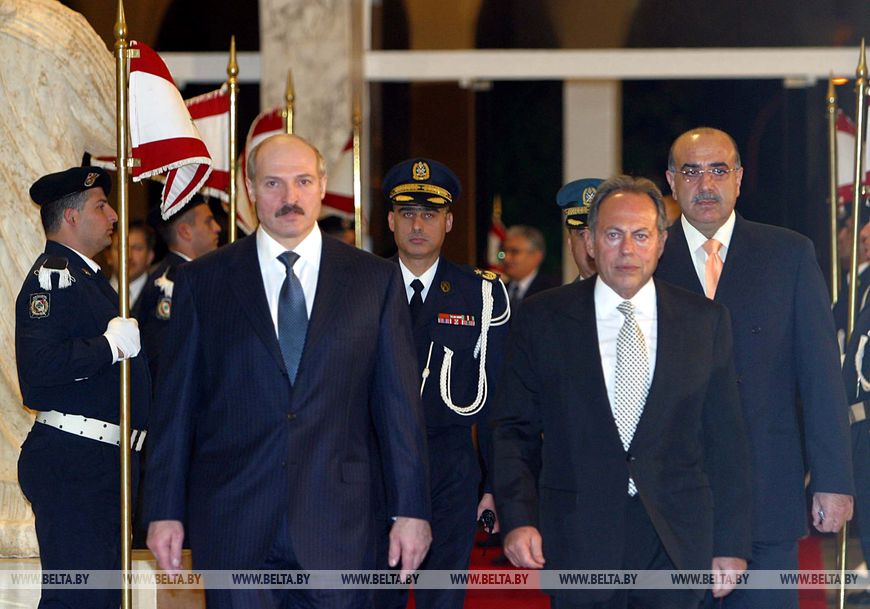

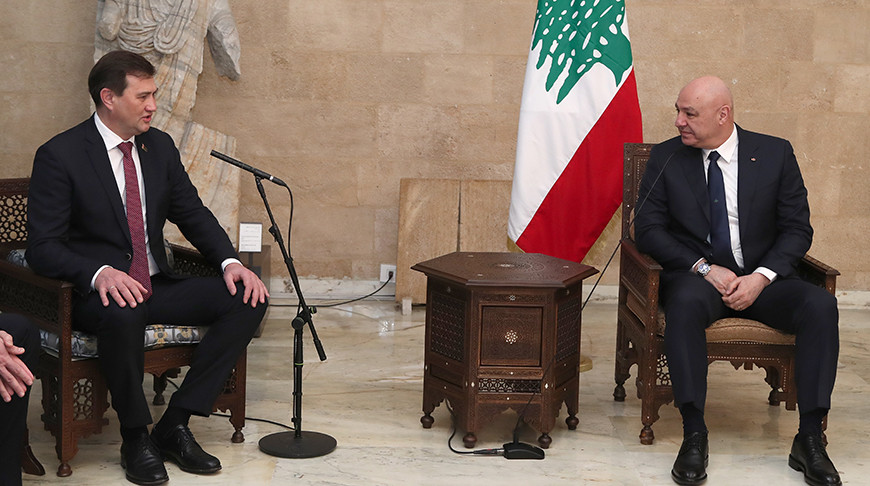
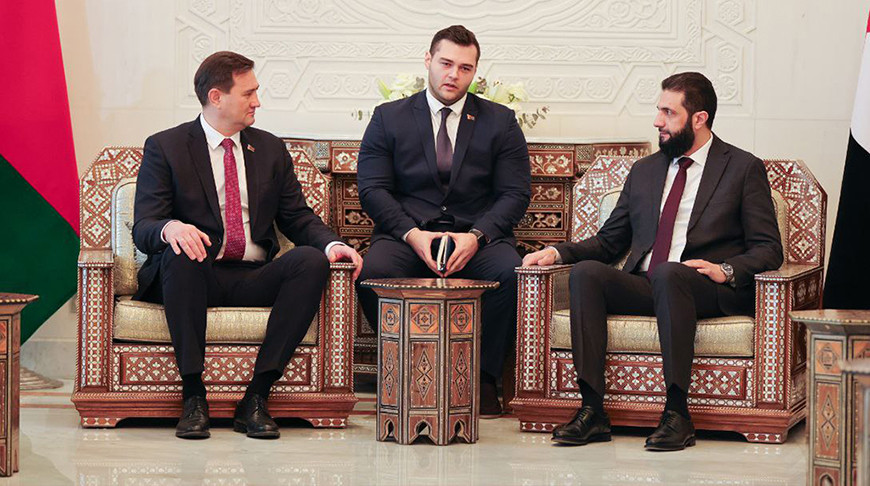
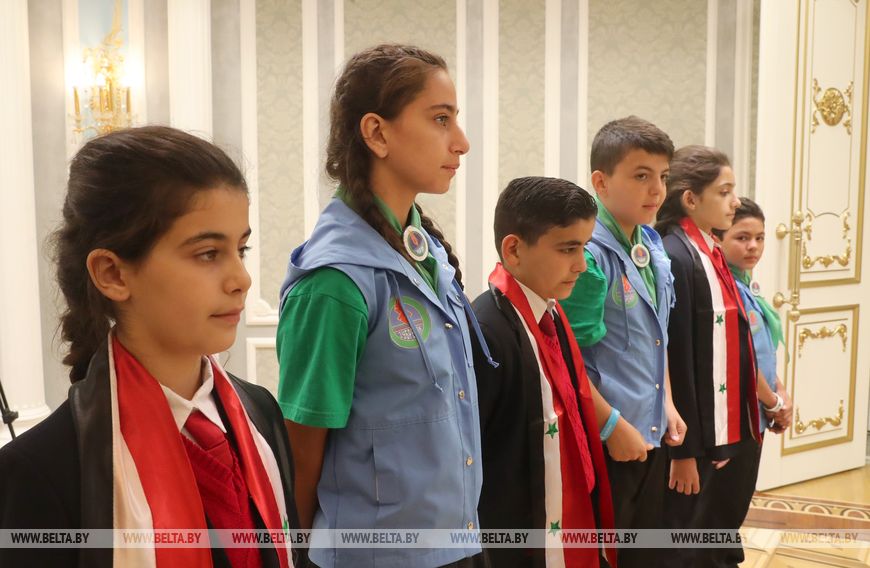
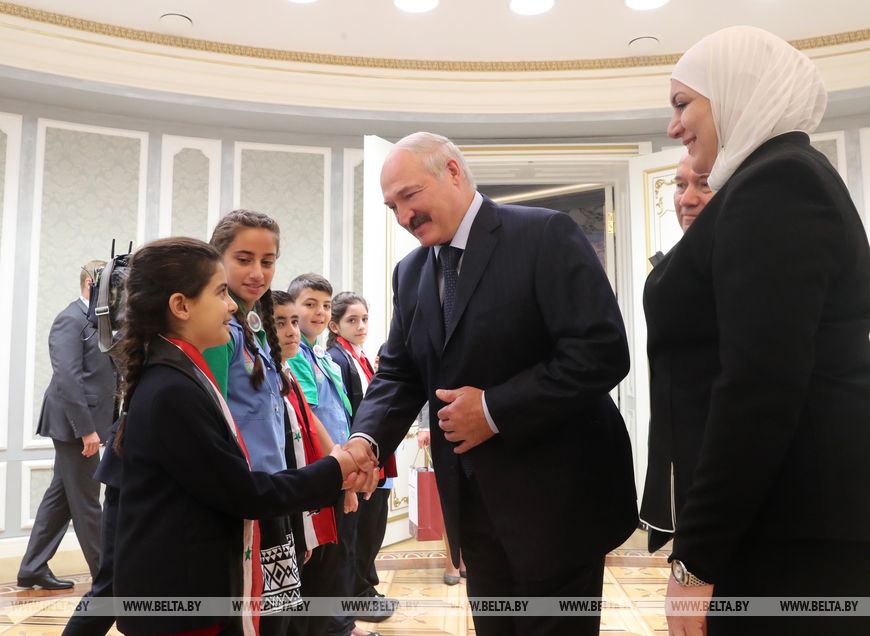
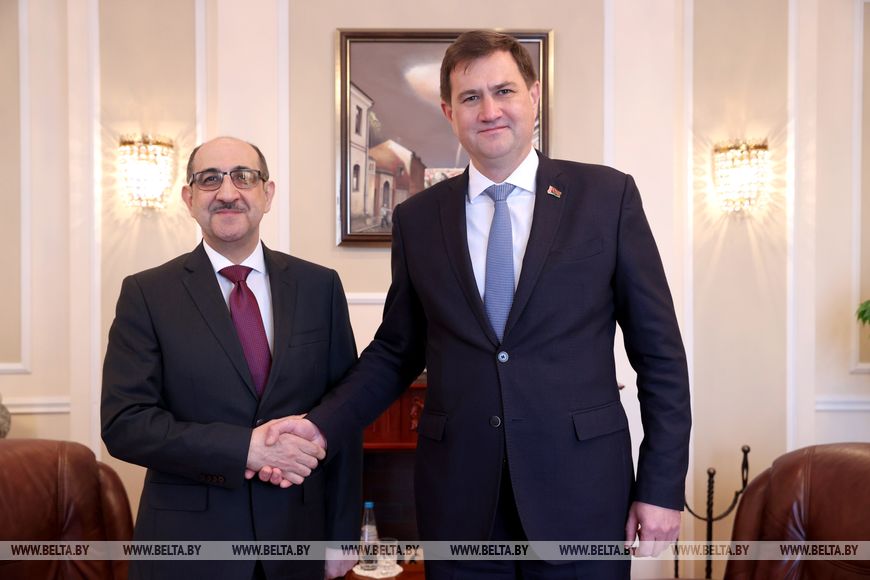
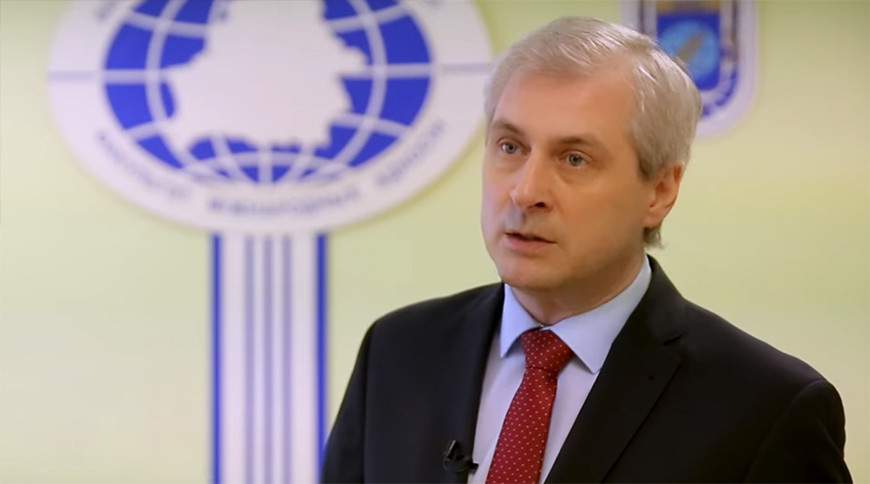
Belarus does have many friends in the Middle East, indeed. Some of them are richer, some are poorer. But, as history has shown, the Belarusian leadership does not think in such categories and does not divide countries into rich and not so rich. Belarus focuses on investment cooperation with some countries and on the promotion of its goods and technologies with others. However, no matter with whom Aleksandr Lukashenko holds talks, he always emphasizes that no topics are out of bounds.
Belarus adheres to these principles when building relations with Syria and Lebanon. No political agenda and interference in internal affairs. Only equal, mutually beneficial dialogue.
“Over the years of our diplomatic presence in the Middle East we have laid a solid groundwork for cooperation with countries of the region, including Syria and Lebanon. At this stage (which is a turning point in the life of both countries in many respects) it allows us to maintain our strong, stable positions both in bilateral relations with these two countries and in the region as a whole. We are here solely for developing equal fruitful cooperation in absolutely all areas both bilaterally and in the international arena,” said Ambassador Extraordinary and Plenipotentiary of Belarus to Syria and concurrently to Lebanon and Jordan Yuri Sluka.

When did Belarus begin to develop relations with Lebanon?
Let us turn to history. Let's start with Lebanon, which in its time was the financial and banking hub of the Middle East and was even dubbed “Middle Eastern Switzerland”.
Let us turn to history. Let's start with Lebanon, which in its time was the financial and banking hub of the Middle East and was even dubbed “Middle Eastern Switzerland”.
Belarus and Lebanon established diplomatic relations in the spring of 1996 and began to build the foundation for future interaction at a comfortable pace.In 1997-1998, the countries exchanged visits at the level of foreign ministers. At the dawn of the new millennium, the heads of government held talks twice. In July 2004, the president of Lebanon visited Belarus. Back then Aleksandr Lukashenko’s words “No topics are off limits” were a through line of the visit.

By the way, by that time about half a thousand Lebanese specialists had already received education in Belarus. About 400 more Lebanese were studying at Belarusian universities at that time. And it was probably the highest figure among all foreign countries. Even now more than 600 students from Lebanon study in Belarus. Most of them return home to build the social and economic infrastructure of their country.
“We have just agreed with the president that trade in civilian goods will make the basis of our cooperation. We should significantly increase the trade between the two states. We have also stated that no topics are off limits in the relations between our states. If the Lebanese leadership is interested in cooperation in the defense industry and high technologies, we will be more than willing to go along this path. We see eye to eye with each other practically on all issues of the Middle East agenda, including the peace settlement. But we believe that it will be hard to bring peace to the Middle East without active involvement of the United Nations,” Aleksandr Lukashenko said during the talks with his counterpart.
What will Lukashenko's visit to Lebanon be remembered for?
Less than a year later, in February 2005, Aleksandr Lukashenko paid a return visit to Lebanon. The talks in Beirut built on the dialogue that began in the Belarusian capital. The head of state was personally greeted at the airport by the president of Lebanon. In Beirut, the parties thrashed out plans to promote cooperation in priority areas: industry, interbank cooperation, investments, science, education, and culture.
Lebanon showed interest in cooperation in the transport sector, electrical engineering and machine tool manufacturing, and in purchasing Belarusian agricultural machinery.

Aleksandr Lukashenko and Émile Lahoud, February 2005
"You keep saying that you are a small country with a small population, a small nation. I must say that you are a greatest nation, because you managed to defend your sovereignty and independence on your own, you liberated your land and preserved your state within the country's ancient borders. I believe that this is the greatest achievement of any nation. Thus, you have earned more than just respect. You have earned a great future," Aleksandr Lukashenko told journalists in Beirut.
“We have very many common interests here. In general, we have a strong position in the Arab world and we feel support here. We have never been let down by the Arab world. This is why we are happy to come here because we feel support, and every time we reach new agreements. No topics are off limits in relations with Lebanon, Syria and other countries,” the president underlined.
Back then, Lebanon was ready to become a gateway to the Middle East market for Belarus. Unfortunately, another war and the ensuing domestic political crisis in Lebanon were a major setback to Belarus-Lebanon interaction. Most of the agreements were put on hold for an indefinite period. And now the situation in the Middle East is far from perfect, but Belarus continued and continues the dialogue with Lebanon.
What did Ryzhenkov discuss with the Lebanese leadership?
In February 2025, the Belarusian foreign minister visited Lebanon. The Belarusian delegation also included business people who wanted to build or expand contacts with this country. Through Lebanon, they develop cooperation with other states.

Maksim Ryzhenkov conveyed a message from the Belarusian head of state to the president of Lebanon. Aleksandr Lukashenko congratulated his Lebanese counterpart on his appointment to this position and invited him to visit Belarus. And this invitation was accepted. To show the seriousness of its intentions, Belarus transferred 100 tonnes of dry milk and 10 ambulances to Lebanon.
"Lebanon is our long-term, good partner. Of course, we cannot put our relations on hold until the situation there becomes perfectly fine. We believe that we should help Lebanon today, when it needs it more than ever," Maksim Ryzhenkov told the media.

Belarus is ready to supply food to Lebanon, help restore its agricultural sector and destroyed infrastructure. Of course, it is impossible to implement all this overnight. Moreover, Lebanon now needs to focus on the domestic political agenda and on maintaining interfaith balance. But the fact that our countries are conducting an open dialogue at the highest level is a very good signal and example for others.
Why Belarusian FM visited Syria
A little earlier, the Belarusian foreign minister visited Syria. Maksim Ryzhenkov flew to Damascus at the invitation of the Syrian side. Just a week before his visit, Aleksandr Lukashenko said at one of the meetings that Syria offered cooperation.
“It asks our officials to come to talk and make up some decisions,” the head of state said.
Maksim Ryzhenkov met with the country's leadership to discuss various areas of cooperation that could facilitate rebuilding in Syria. The foreign minister handed over to the Syrian leader certificates for 50 MAZ buses. These buses will be donated to the Syrian people by the president and the people of Belarus. They will be produced and sent to Syria within three months.
During the meeting, Maksim Ryzhenkov noted that Minsk is ready to continue recuperation programs for Syrian children. These humanitarian programs are run under the patronage of the Belarusian head of state. They have been instrumental in bringing two peoples closer in recent years. When Aleksandr Lukashenko suggested a health recuperation program for Syrian children in Belarus, he said that he proceeded from a common human truth: when you help others, you will be reciprocated in kind. As for children, they always come first.

According to the Syrian media, the minister of foreign affairs held another meeting in Damascus - with the leadership of the General Intelligence Directorate. Intelligence, like diplomacy, likes silence. So we can only build up theories regarding the topics discussed at the meeting and agreements reached.
What brings Belarus and Syria closer?
Belarus has been providing humanitarian aid to Syria since 2015. Over the years, Syria has received four shipments of goods, including baby food and other food products, medicines, medical equipment, blankets, children's clothes and footwear, and also MAZ machinery. In 2017-2024, the Belarusian children’s recuperation camp Zubrenok hosted more than 1,300 children from Syria for recuperation holidays.
Two years ago, Aleksandr Lukashenko instructed to send humanitarian aid to earthquake-stricken Syria and deploy military medics there.


Aleksandr Lukashenko meets with Syrian children in August 2017
“We have never turned our backs on Syria. We have provided and continue providing humanitarian support to the Syrian people, especially to children. We have developed a recuperation program for Syrian children in Belarus. We mean to continue this work,” Aleksandr Lukashenko said as he met with ICRC president on 8 November 2017.
Will Belarus and Syria be able to reset their relations?
Belarus-Syria trade and economic cooperation has been recently affected by a challenging environment. This included destroyed transportation and social infrastructure, an acute shortage of financial resources, and a decline in the purchasing power of the Syrian population. In 2021 trade between the countries amounted to $8.2 million. It used to exceed $86 million in the past. Belarus mainly exports to Syria its special-purpose goods, milk powder, whey, medicines, tractors and truck tractors. Belarus imports Syrian olive oil, fruits and vegetables, nuts, and coffee.
Maksim Ryzhenkov's recent visit to Syria has showed that Damascus was willing to develop relations with Minsk. No political agenda, just equal and mutually beneficial dialogue. Syria aims to reform its transportation sector, which means that Belarusian machinery will be in demand. The parties discussed possible assembling of buses and agricultural machinery and also other projects in Syria.

“Everything was prepared very quickly. We received a very good welcome at the highest level (meetings with the heads of state were positive and constructive). It is a good sign,” the ambassador said. “We are known here. We are remembered here. We are welcome here. It is another good signal to continue our work and expand our presence here. We have demonstrated no unconstructive moves or negative attitude. All our actions have always been well-meaning. Let me recall the participation of our medics in the United Nations mission in Lebanon. Our military doctors were known not only within the military units. They also treated local residents, and did a really good job.”
Nikita Belenchenko, the director of the center for international studies at the faculty of international relations at the Belarusian State University, believes that everything will depend of the domestic and foreign policy the current government of Syria chooses.

“This will include the chances to find compromise with other countries, as well as in this region,” he said. “We seek to develop relations with all countries and regions. I am not sure that we should take into account conflicts that are chaotic and somehow refuse to cooperate. On the contrary, we should support in every possible way the political situation that is going on in these countries. If we support both Syria and Lebanon, it further resonates with other countries of the Middle East: Saudi Arabia, UAE, Oman, and so on.”
The situation in the Middle East remains tense. Belarus, however, is determined to work there regardless of any difficulties. They will definitely end at some point. We need to show our worth now, especially when our support is desperately needed.
If we wait for ideal conditions to win the market, we will simply be sidelined. No one will even know about us. We will simply be too late. This is why we are already there and should never leave, making our presence felt in every possible way. For Belarusians, those ways are creation and exceptionally constructive interaction.





